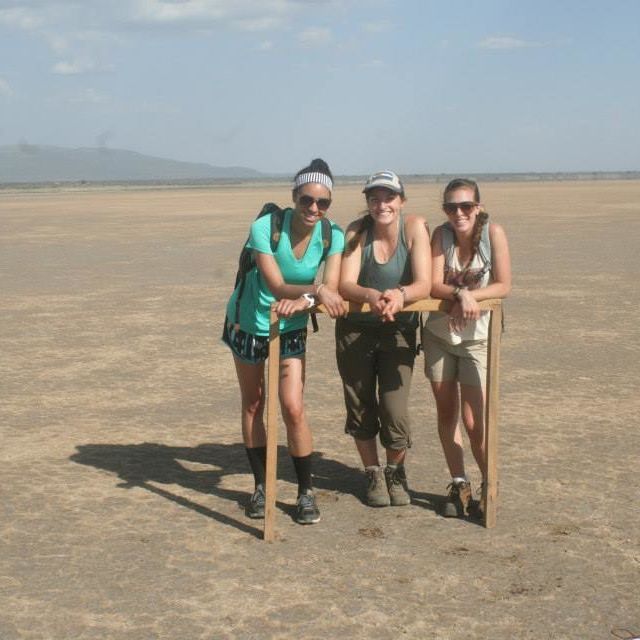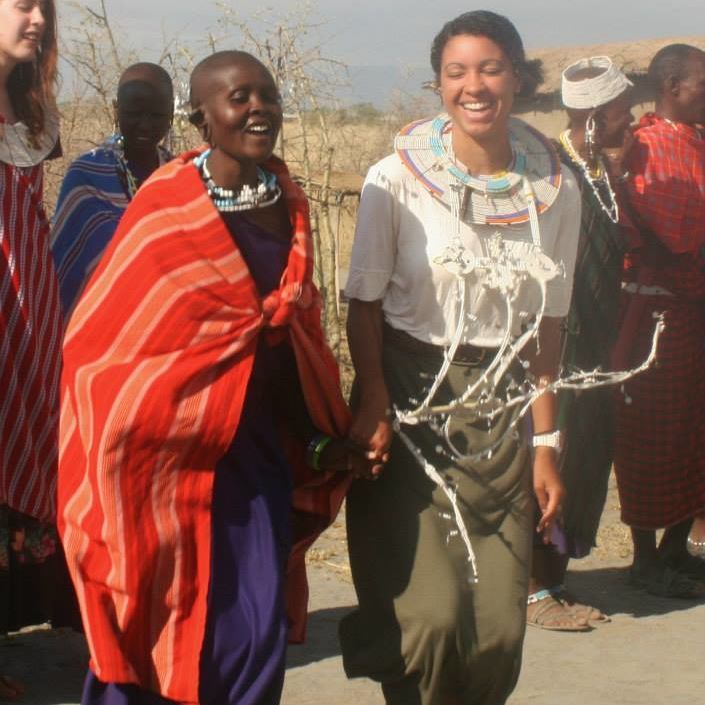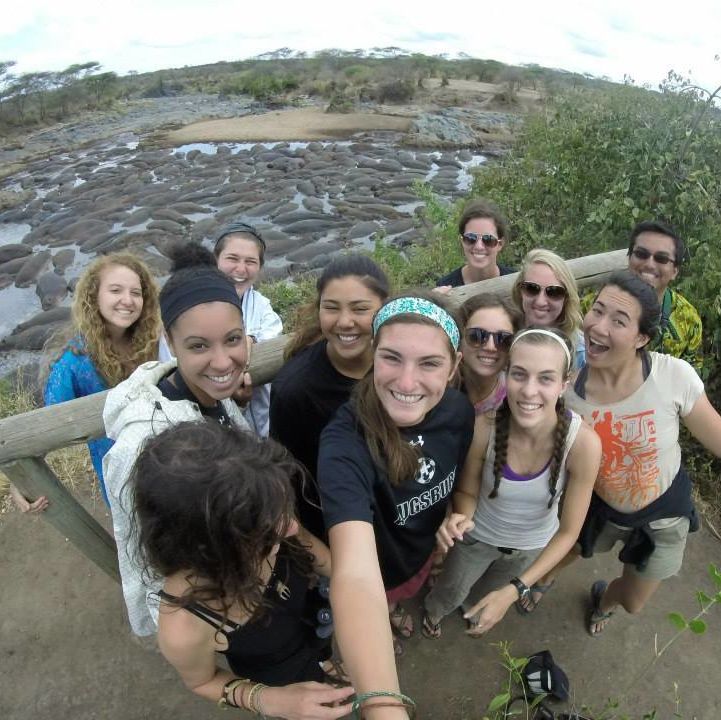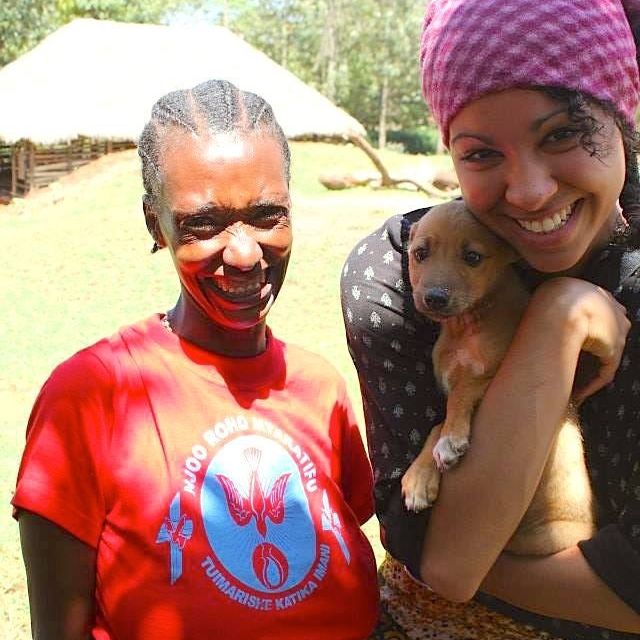F&M Stories
Off-Campus Study: Katie Foreman '16
Last Spring I studied Wildlife Management in Tanzania, East Africa. I chose a nontraditional program through the School for Field Studies, which focuses on fully immersing students in a culture and educating through experiences in developing areas. To say that going to school in rural Tanzania is different from going to classes at F&M wouldn't even do the program justice. Daily life included unintentionally sharing meals with greedy wildlife and waking up to hyenas "laughing".
When you consider studying abroad you hear a lot about how much it will change you as a person. That scared me at first, to be honest; I wasn't sure if I wanted to change, because I didn't know what that might mean for me. It was especially daunting as someone who straightens her hair everyday to be told that electricity would be extremely limited. I was shocked to see up close the real difference between a progressive America and a developing Africa. Spending time with the locals, however, taught me not just to be grateful for what I have but that I shouldn't be ashamed of it either. Their curiosity was overwhelming, but so was their acceptance. They did not resent us for what we had, rather they asked if it made us happy, and if it would make them happy to have the same things. This was, perhaps, the most eye-opening revelation of my entire time there.
Adjusting to life upon returning to the States was a challenge to say the least. After the initial culture shock I recognized the need to bring the lessons I learned on the Serengeti back to the streets of Lancaster and beyond to encourage a similar appreciation of everyone's differences, so here they are:
Five Lessons from the Serengeti
-
If it ain't broke, don't break it. We have a bad reputation of going to developing countries and trying to change everything. They don't always want our help, and we have no right to force it.
-
Sometimes, you should sweat the little things, because they can become big things. I would be too worried about the hyena 20 feet in front of me and not notice the poisonous centipede crawling up my leg (yes, that actually happened).
-
Patience isn't a virtue, it's a necessity. My directed research consisted of hiking 12 miles a day, for 10 days straight, and stopping to count and observe every single animal I saw to contribute to a decade long scientific study. Some days, from 8am-6pm, all we saw were a few herds of cattle (and never have I ever missed watching animal planet in an air-conditioned house more).
-
Kindness is a universal language. During my one-day homestay, the family spoke the language of the local tribe, so English and what little Swahili I had learned were both useless. Somehow, we cleaned their entire farm and home, and prepared and ate a very enjoyable meal together (and goat roasting is hard).
-
Adventure is out there, but if the park ranger cocks his gun and stares at a bush, you've gone too far.
Because my experience was so humbling, I try to wake up every day and live my best life and just think "Hakuna matata."
OCS Profile
Katie Foreman '16
School for Field Studies - Wildlife Management Studies
Moyo Hill Camp, Tanzania
Term Abroad: Spring 2015
Bonchek College House
Major: Environmental Studies
Campus Affiliations: Off-Campus Study Ambassador, F&M Volleyball, Alumni Leaders of Tomorrow, F&M Unleashed
Related Articles
March 4, 2026
A Peek Behind the Stacks: A Student’s Role in the College Library
Learning by doing is a hallmark of the Diplomat experience. For Abby Jones ’28, this philosophy comes to life at the College Library in a role that blends her love of reading, writing, and stories. “I’ve always loved libraries, and was excited to step into a job where I’d get to work with a lot of the books in a more hands-on way,” she said.
March 2, 2026
[Video] Thinkers, Doers, Diplomats: Maj. Gen. Richard P. Mills ’72 on the Spirit of Service
For Maj. Gen. Richard P. Mills ’72, an F&M education was the launchpad for a storied military career and a lifelong journey of discovery. As he watches today’s Diplomats walking the same paths he once did, Mills sees a familiar pilgrimage toward a future of influential leadership and engaged citizenship.
February 26, 2026
Carrying a Torch for Inorganic Chemistry
While his uncle was among thousands chosen to carry the Olympic torch to the Milano Cortina Winter Games, Davide Lionetti was in the classroom, enlightening his students about processes of inorganic chemistry




